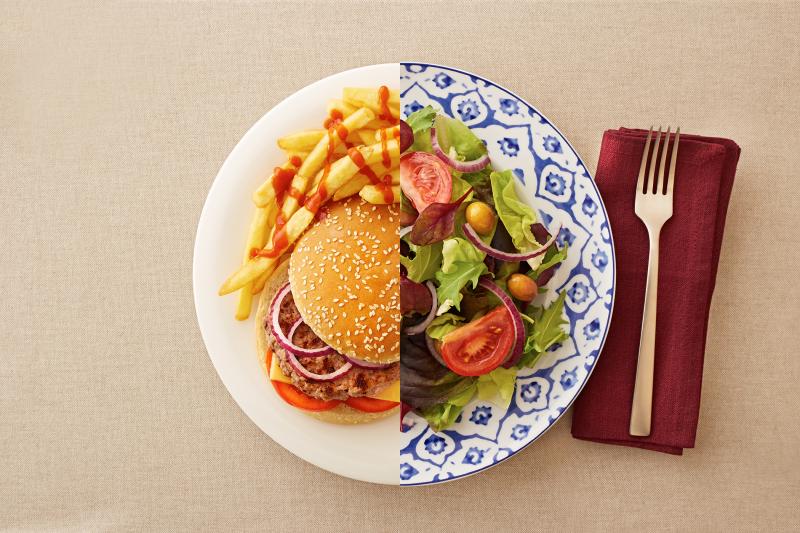
Individuals with post-traumatic stress disorder (PTSD) exhibit less healthy changes in overall diet quality over time, a study has found.
Researchers looked at 51,965 women (mean age, 34.8 years) who were followed over 20 years in the Nurses' Health Study II PTSD substudy. Diet was assessed at 4-year intervals using the Alternative Healthy Eating Index-2010.
Compared with women with no trauma exposure, those who reported having 4–7 PTSD symptoms in 1989 were somewhat more likely to be postmenopausal, live alone, have a history of depression or cancers/diabetes/cardiovascular disease, and be a current smoker or overweight/obese.
During follow-up, 62.1 percent of the 26,092 women with no trauma prior to 1989 developed new-onset trauma with or without PTSD symptoms.
Diet quality overall improved over 20 years of follow-up regardless of PTSD status. In multivariable linear mixed-effects spline models adjusted for age, women with prevalent trauma/PTSD symptoms and those with new-onset high PTSD symptoms showed a 3.3- and 3.6-percent lower improvement in diet quality, respectively, compared with women with no trauma.
Associations remained consistent in analyses controlling for health conditions, sociodemographic factors and behavioural characteristics.
The present data suggest that PTSD rather than trauma exposure alone can lead to less healthy dietary behaviour, providing insight into behavioural mechanisms that may explain how PTSD might increase the risk of obesity and related comorbidities, including type 2 diabetes and cardiovascular disease, and even some cancers, according to the researchers.
As such, behavioural modifications should be incorporated into conventional strategies for treatment and prevention of PTSD-related comorbidities, they added.